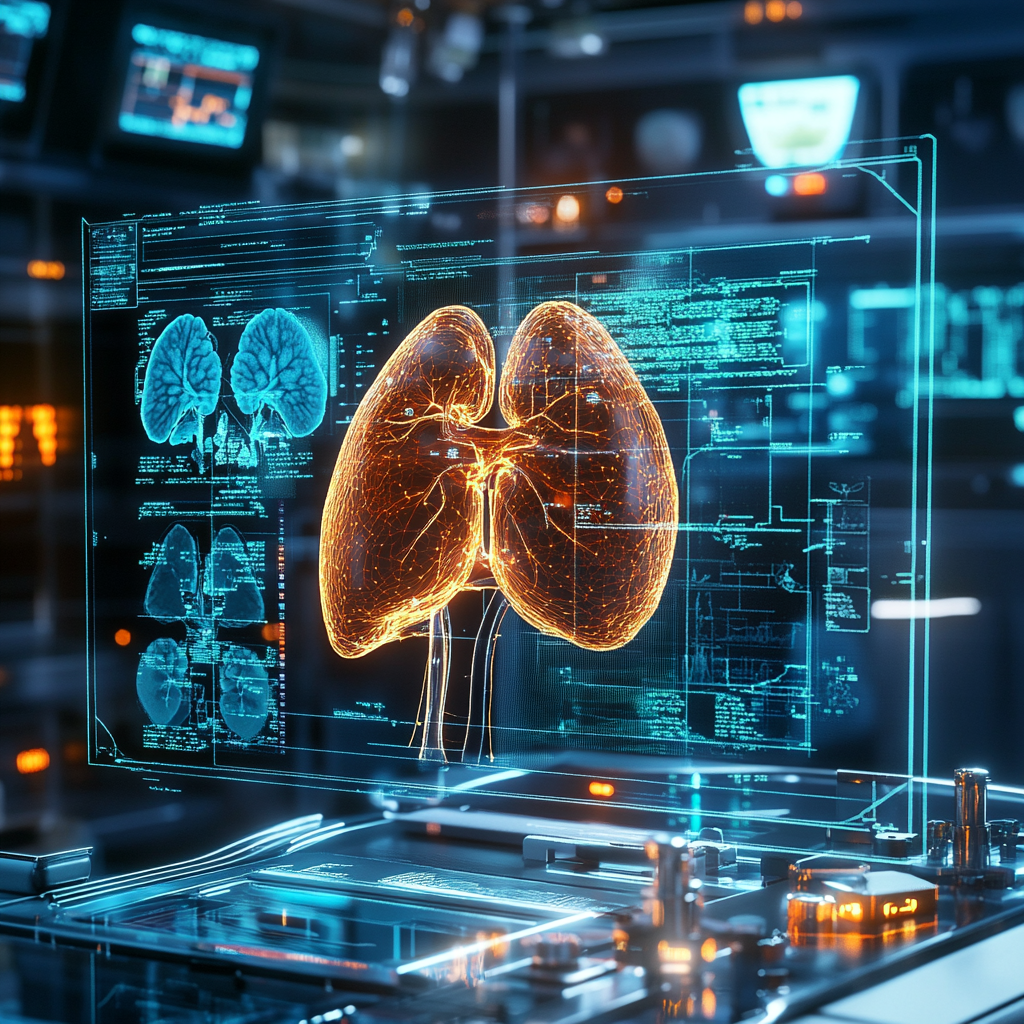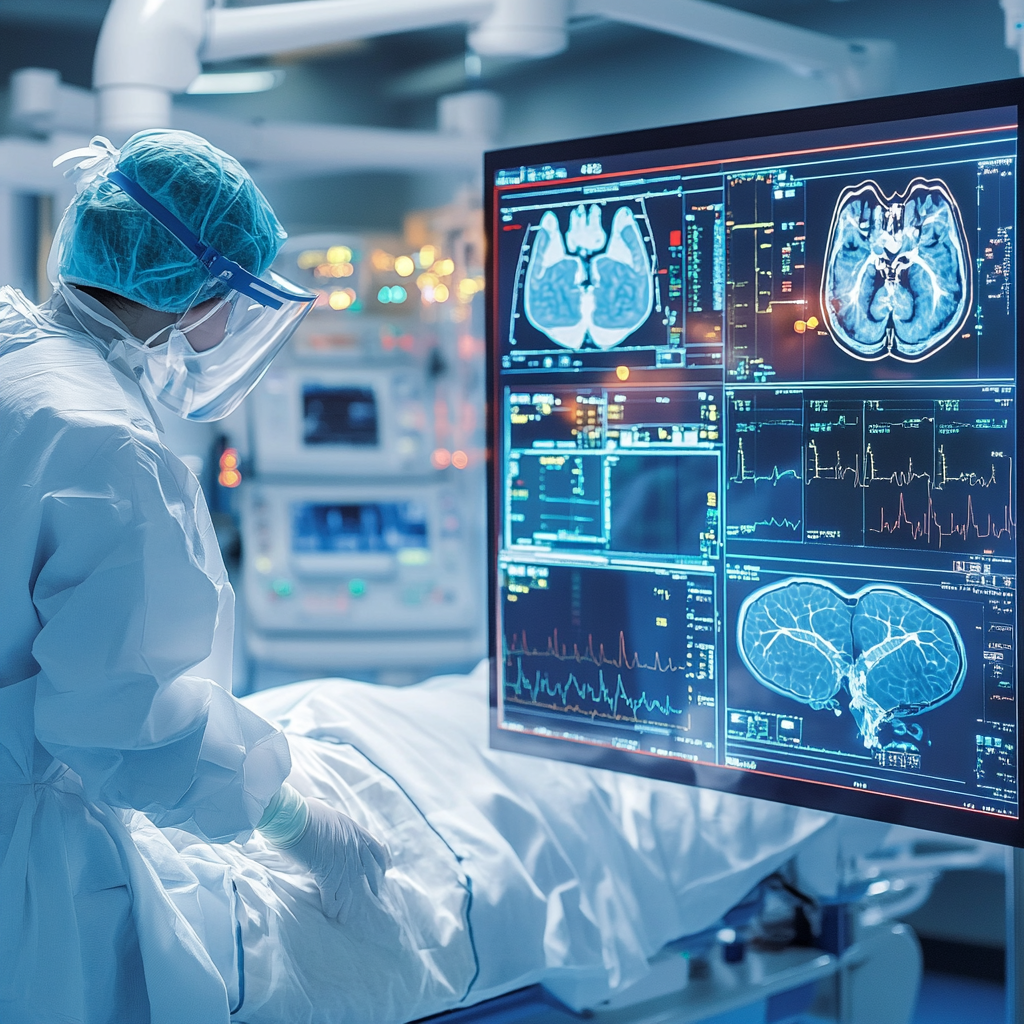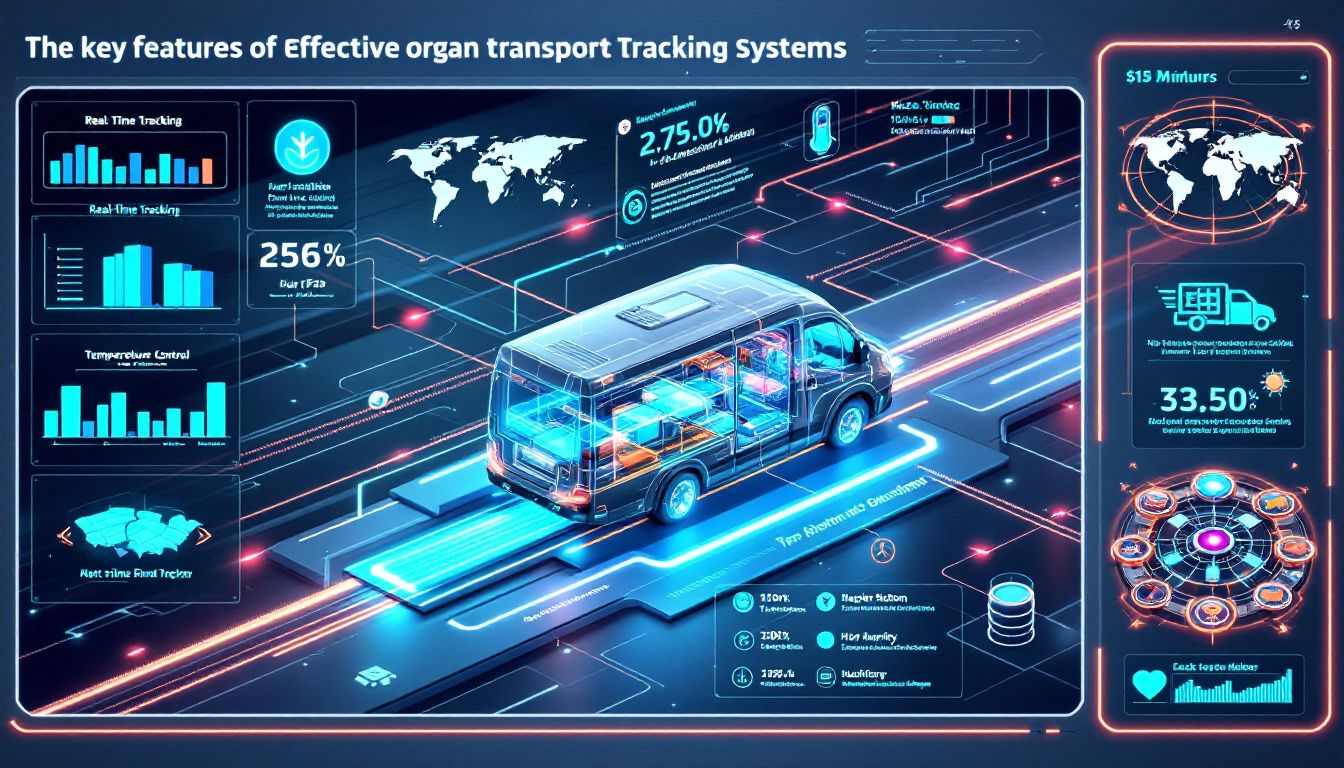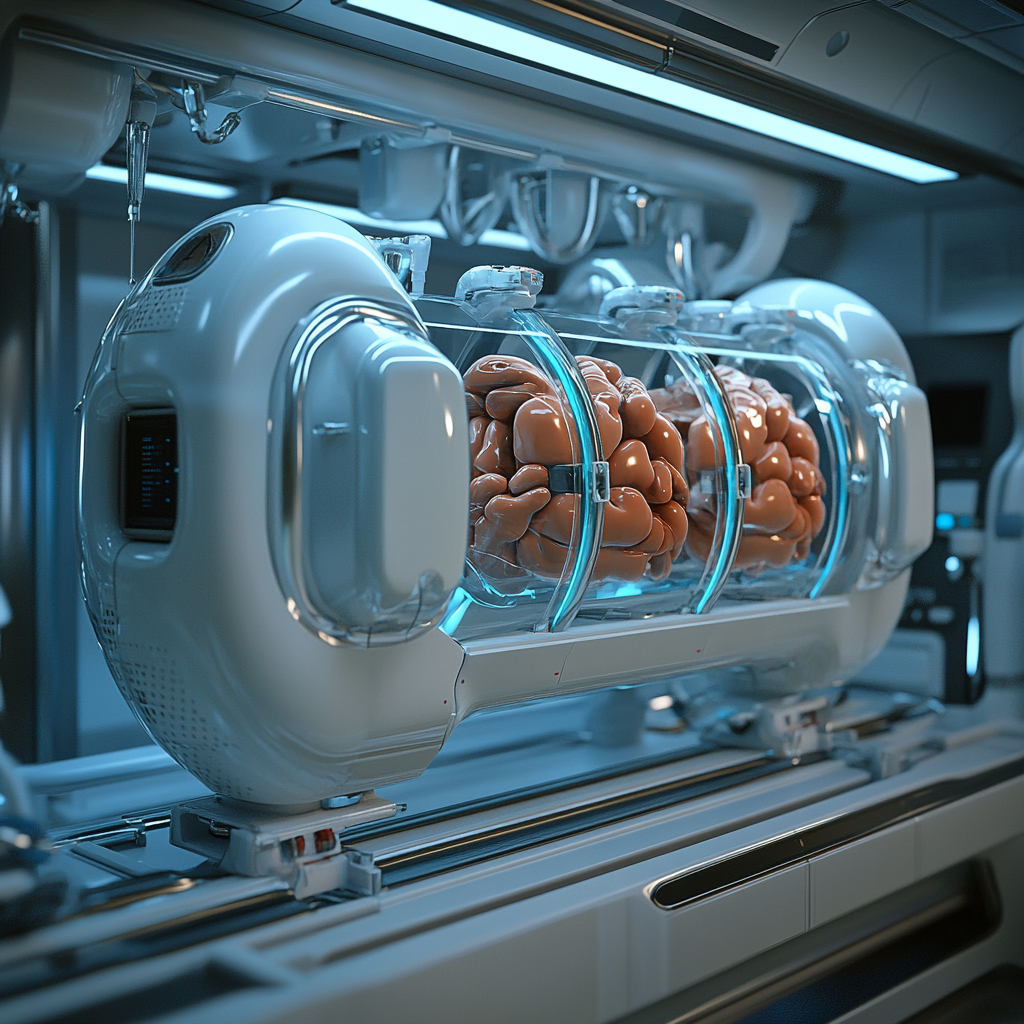Cutting-Edge Tracking Systems for Organ Transports: Ensuring Safe Delivery
Tracking systems for organ transports are crucial for ensuring donor organs arrive quickly and safely. These systems provide real-time updates, reduce risks, and enhance coordination among medical teams. This article will explore the importance, technological advancements, key features, integration with procurement organizations, case studies, challenges, and future trends.
Key Takeaways
Effective tracking systems are essential for the timely and secure transport of donor organs, ensuring they arrive in optimal condition for transplantation.
Modern technologies, such as machine perfusion and real-time monitoring, enhance organ viability during transit and improve communication among transport teams, leading to better transplant outcomes.
Challenges like inconsistent tracking system standards and poor communication can hinder organ transport, but advancements in technology and predictive analytics are set to improve efficiency and reliability in the future.
The Importance of Tracking Systems in Organ Transports

For organ transplants to be successful, donor organs must arrive quickly, often within hours of procurement. Tracking systems are essential in this context, ensuring that organs are transported within the critical time frame necessary for successful transplantation. These systems provide real-time updates and visibility, allowing medical teams to coordinate surgeries efficiently and effectively.
The implementation of tracking technologies significantly reduces the risk of organ loss or damage during transit. By continuously monitoring the location and condition of the organs, these systems help protect the valuable cargo from adverse conditions that could compromise its viability. This level of monitoring is especially crucial as the definition of viable organs expands, allowing for the utilization of organs from older or high-risk donors.
Transporting organs is a complex process that involves multiple stakeholders, from organ procurement organizations to transplant teams. Effective tracking systems ensure seamless communication and coordination among these parties, ultimately leading to better outcomes for patients awaiting transplants.
How Modern Technology Enhances Organ Transport

Modern technology has brought significant enhancements to the field of organ transport. New technologies can significantly extend the viability of organs beyond traditional cold storage methods. These advancements in organ preservation methods, such as machine perfusion, keep donor organs in a functioning state by continuously supplying oxygenated blood during transport.
One notable example is the TransMedic Organ Care System, which maintains the physiological condition of donated organs, thereby extending their viability and improving transplant outcomes. Environmental factors, such as temperature fluctuations during transport, pose a risk to organ viability, making reliable tracking technology even more critical.
By utilizing modern technology for organ transport, the number of unused donor organs can be reduced, improving the overall efficiency of the transplantation process. These innovations not only enhance the preservation of organs but also ensure that transplant teams receive organs in optimal condition, thereby increasing the chances of successful transplants.
Did you know that you can get from Manhattan to JFK in under 5 minutes without driving?
Blade offers seamless helicopter transfers from our West 30th Street Lounge in Manhattan to JFK Airport in just 5 minutes from $195 per seat.
Skip the traffic and ditch the stress with Blade's year-round airport service.

Real-Time Monitoring for Organ Transports

One of the most critical advancements in organ transport is the ability to monitor organs in real time. Enhanced tracking capabilities provide real-time updates on organ status, which is vital for coordinating timely surgical director procedures. Advanced systems such as the SherpaPak offer real-time monitoring, aiding in better assessment and outcomes for transplanted organs.
Real-time monitoring improves communication between transport teams, enhancing overall logistics. These systems continuously track organ vitality and location, ensuring that any issues can be addressed immediately. Continuous data streaming from sensors enables a swift response to any changes in the organ’s condition, ensuring optimal transport conditions.
The integration of IoT technology allows for seamless data collection and transmission throughout the transport process. Using geolocation data, these systems can reroute transport to prevent organ deterioration, enhancing the predictability of organ transplants and minimizing risks associated with misplacement or delivery delays. Advanced tracking systems have contributed to successful organ transplants by ensuring real-time monitoring of vital signs throughout the process, showcasing how organ transport saves lives.
Key Features of Effective Organ Transport Tracking Systems

Effective organ transport tracking systems include several key features. GPS technology enhances the visibility and location tracking of organs during transportation, ensuring they can be located at any point during their journey. This technology is crucial for maintaining the integrity of the transport process and ensuring timely deliveries.
Maintaining optimal temperature is another vital aspect of effective tracking systems. Temperature fluctuations can severely impact the viability of organs, making it essential to monitor and control the temperature throughout the transport process. Alert systems can notify stakeholders immediately if temperature or location parameters deviate from the norm, allowing quick corrective actions.
An advanced organ tracking system integrates GPS and temperature monitoring to address previous issues with organ transport, ensuring timely delivery and optimal conditions for the organs. These features collectively enhance the efficiency and reliability of organ transport, leading to better transplant outcomes.
Integration with Organ Procurement Organizations
Integrating advanced tracking systems with organ procurement organizations is critical for improving organ transplants. Accurate tracking systems improve communication among medical teams, essential for managing the logistics of organ transplantation. This integration aids in planning and executing the transport process more efficiently, enhancing transplant success rates.
To address human error, which is a common challenge in the transport process, training and standardizing procedures for personnel involved in organ transport are necessary. Emerging technologies for organ preservation and transportation aim to optimize the use of donated organs, bridging the gap between supply and demand.
Fully integrating tracking systems with organ procurement organizations makes the entire process fully integrated, smoother and more reliable. This integration ensures donated organs are transported in the best possible conditions, ultimately benefiting patients awaiting transplants.
Case Studies: Successful Organ Transports Using Advanced Tracking Systems
Real-world examples highlight the effectiveness of advanced tracking systems in organ transport. A study demonstrated that drone technology could deliver organs effectively within urban settings, showing potential for improving transplantation outcomes. This innovative approach could revolutionize how organs are transported in the future.
Intelligent power management systems with redundancy have been shown to enhance the safety and effectiveness of organ transport. These systems ensure organs remain in optimal conditions throughout their journey, reducing the risk of failure.
Innovations in organ transport also enable medical teams to evaluate the health of organs before transplantation, ensuring better patient outcomes. Projects focused on creating user-friendly interfaces for real-time monitoring have further improved the reliability and efficiency of organ transport tracking systems.
Challenges and Solutions in Organ Transport Tracking
Despite advancements, challenges remain in organ transport tracking. One significant challenge is the variability in tracking systems across different institutions, leading to inconsistencies in organ delivery. Standardizing tracking systems can help address this issue and ensure more consistent outcomes.
Poor communication between organ procurement organizations and transportation services can hinder the timely delivery of organs, illustrating the impact of delayed organ transport on transplant outcomes. Improving communication protocols and integrating advanced tracking systems can mitigate these challenges, ensuring organs reach their destination promptly and safely.
Did you know that you can get from Manhattan to JFK in under 5 minutes without driving?
Blade offers seamless helicopter transfers from our West 30th Street Lounge in Manhattan to JFK Airport in just 5 minutes from $195 per seat.
Skip the traffic and ditch the stress with Blade's year-round airport service.

Future Trends in Organ Transport Technology

The future of organ transport technology looks promising, with several trends on the horizon. Analyzing historical data, advanced tracking systems can predict and improve future transport efficiencies. This predictive capability can help in planning more efficient routes and reducing transit times.
Artificial intelligence is being explored to improve organ allocation processes and optimize donor lungs-recipient matching. These advancements could lead to more personalized and efficient transplantation processes, ultimately saving lives.
As new technology continues to evolve, expect even more innovative solutions to emerge, further enhancing the safety and efficiency of organ transport.
Bottom Line: Tracking Systems for Organ Transports
In summary, cutting-edge tracking systems are transforming the landscape of organ transport. From real-time monitoring to advanced preservation methods, these technologies are ensuring that donor organs reach their recipients safely and promptly. The integration of tracking systems with organ procurement organizations and the continuous innovations in this field are paving the way for more successful transplants.
As we look to the future, the potential for even greater advancements in organ transport technology is immense. By embracing these innovations, we can continue to improve transplant outcomes and save more lives. The journey of organ transport is one of precision, coordination, and technological excellence, and its future holds incredible promise.
FAQs about Tracking Systems for Organ Transports
Why is timely delivery crucial in organ transplants?
Timely delivery is crucial in organ transplants because the viability of donor organs diminishes quickly after procurement. Ensuring prompt transportation is vital for successful transplantation outcomes.
How does the TransMedic Organ Care System enhance organ transport?
The TransMedic Organ Care System enhances organ transport by maintaining donor organs in a functioning state with continuous oxygenated blood supply, which extends their viability and improves transplant outcomes. This innovation significantly increases the chances of successful transplants.
What role does real-time monitoring play in organ transport?
Real-time monitoring is crucial in organ transport as it ensures continuous updates on the organ's status, improves communication among transport teams, and maintains optimal conditions during transit. This enhances the overall logistics and safety of the organ delivery process.
What are some challenges in organ transport tracking?
One major challenge in organ transport tracking is the variability in tracking systems used by different institutions, which is compounded by poor communication between organ procurement organizations and transportation services, often resulting in inconsistencies and delays.
What future trends can we expect in organ transport technology?
You can expect advancements in organ transport technology such as artificial intelligence for better donor-recipient matching and predictive analytics to optimize transport efficiency. These innovations will significantly enhance the effectiveness of organ transplantation.
Disclaimer:
Please be aware that the content on this page has been generated by using artificial intelligence language models and may contain errors, inconsistencies, or outdated information. It is provided as-is without any warranties or guarantees of accuracy. We strongly recommend using this content as a starting point for further research. We disclaim any liability for damages or losses resulting from the use or reliance on this content.